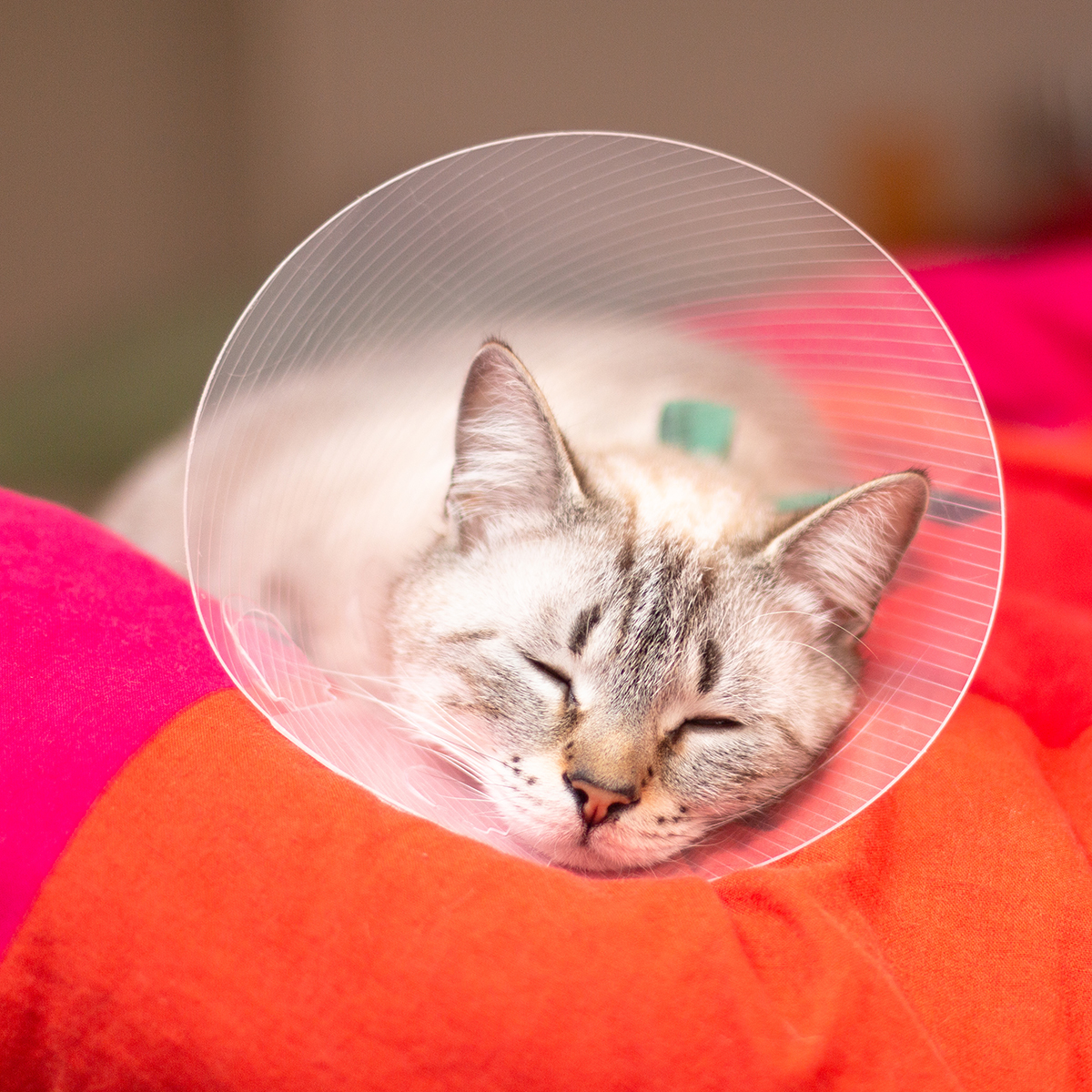Pet Surgery
Learn essential information about your pet’s surgery, including how you can help help with the procedure and recovery.
Is anesthesia safe for my pet?
At All Creatures Animal Hospital, we use modern anesthetic monitors and instruction agents to ensure total safety for your pet when we apply anesthesia. Before the procedure, we perform a thorough physical exam to ensure anesthesia can be safely applied, as well as to confirm the best type and amount of anesthetic to use. This exam includes preanesthetic blood testing, which verifies that your pet’s liver and kidneys can handle the anesthetic even if they appear fully healthy. Animals that have minor dysfunction receive IV fluids during surgery. If serious problems are detected, surgery can be postponed until the problem is corrected.
Surgery must be done on an empty stomach to reduce the risk of vomiting during and after anesthesia. You will need to withhold food from your pet for at least 8 to 10 hours before surgery. Pets can continue drinking water until the morning of surgery.

Surgical Laser
The veterinarians at All Creatures Animal Hospital are proud to use surgical lasers as part of our suite of advanced diagnostics and treatments.
Will my pet have stitches?
For many surgeries, we use absorbable sutures underneath the skin. These will dissolve on their own and do not need to be removed. Some surgeries, especially tumor removals, do require skin stitches. With either type of suture, you will need to keep an eye on the incision for swelling or discharge. While most dogs and cats do not lick excessively or chew at the incision, monitor your pet to ensure they do not remove it. If there are skin sutures, these will usually be removed 10 to 14 days after surgery. You will also need to limit your pet’s activity level for a time, and no baths are allowed for the first 10 days after surgery.
Will my pet be in pain?
Anything that causes pain in people can be expected to cause pain in animals, even if they don’t show signs of distress. Pain medications needed will depend on the surgery performed. Major procedures require more pain relief than things like minor lacerations.
For dogs, we may recommend an oral anti-inflammatory medication the day after surgery and several days after to lessen the risk of discomfort and swelling. We use newer medications, which are less likely to cause stomach upset and can be given even on the morning of surgery. The cost of the medication ranges from $10 to $15, depending on the size of your dog.
Because cats do not tolerate standard pain medications such as aspirin, ibuprofen, or Tylenol, their treatment is more limited. Recent advances in pain medications have allowed for better pain control in cats than ever before. We administer a pain injection 10 minutes prior to surgery. After surgery, pain medication is given on a case-by-case basis. Any animal that appears painful will receive additional pain medication.
We use narcotic patches for some surgeries in dogs as well. The cost will depend on the size of the dog. Injectable pain medications may also be used after surgery on both dogs and cats. Providing whatever pain relief is appropriate is a humane and caring thing to do for your pet.
What other decisions do I need to make?
While your pet is under anesthesia, it is the ideal time to perform other minor procedures, such as dentistry, ear cleaning, or implanting an identification microchip. If you would like an estimate for these extra services, please call ahead of time. Doing so before the procedure also authorizes us to perform additional care in case the person dropping the pet off for surgery is not the primary decision-maker for the pet’s care.
When you bring your pet in for surgery, we will need 5 to 10 minutes to fill out paperwork and make decisions regarding blood testing and other additional options. When you pick up your pet after surgery, plan to spend about 10 minutes to go over your pet’s home care needs.
We will call you the night before your scheduled surgery appointment to confirm your drop-off time and answer any questions you might have. In the meantime, please don’t hesitate to call us with any questions about your pet’s health or surgery.
